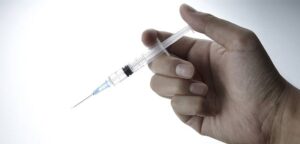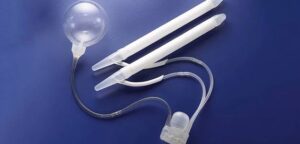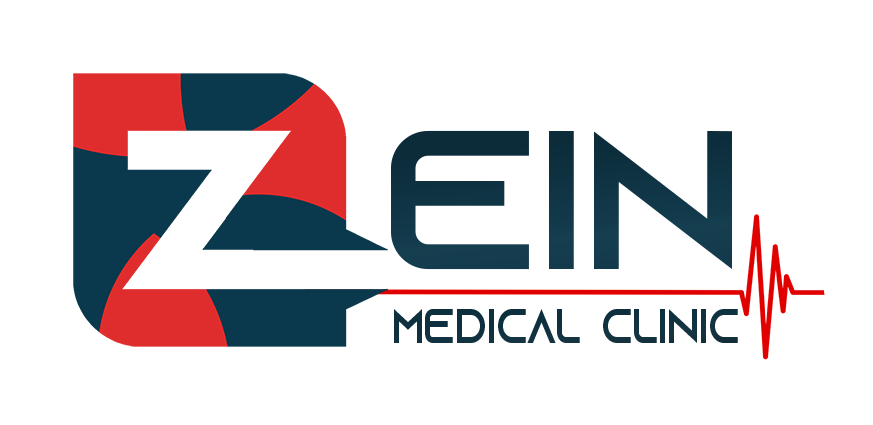Treatment of erectile dysfunction
Erectile dysfunction is a common condition that affects nearly 30% of men at some stage in their lives.
It is defined as the inability to achieve or maintain sufficient erection for sexual intercourse.
Erectile dysfunction can be a painful and exhausting problem for men, and it can lead to decreased self-confidence and problems in marital relationships.
Causes of erectile dysfunction
There are many causes that can lead to erectile dysfunction, including:

- Psychological causes: such as stress, anxiety, and depression.

- Physical causes: such as heart disease, atherosclerosis, diabetes, high blood pressure, prostate diseases, and neurological disorders.
- Drug-related causes: such as some medications used to treat high blood pressure, depression, asthma, and cancer.
- Surgical causes: such as prostate, bladder, or testicular surgery.
Who is most susceptible to erectile dysfunction
The risk of erectile dysfunction increases with age. Men who suffer from chronic diseases such as heart disease, diabetes, and high blood pressure are more susceptible to erectile dysfunction.
What are the most important complications of erectile dysfunction
The physical symptoms of erectile dysfunction
The most important physical symptoms of erectile dysfunction include the following:

- Inability to achieve an erection, or the erection of the penis for a short period that does not allow completion of sexual intercourse.
- Decreased sexual desire.
- Exposure to some other sexual problems, such as premature ejaculation or delayed ejaculation, or failure to reach sexual climax.
The psychological symptoms of erectile dysfunction
The most important psychological symptoms of erectile dysfunction include the following:

- Feeling of frustration.
- Feeling of embarrassment.
- Feeling of weakness.
- Feeling of disturbance.
Types and degrees of male erectile dysfunction
Erectile dysfunction can be divided into several types and degrees, depending on its severity and frequency:
- Transient erectile dysfunction: occurs intermittently and does not affect the ability to engage in sexual intercourse fully.
- Continuous erectile dysfunction: occurs permanently and makes it difficult or impossible to achieve an erection.
- Partial erectile dysfunction: occurs intermittently but does not prevent achieving sufficient erection for sexual intercourse.
Treatment of erectile dysfunction
The treatment of erectile dysfunction depends on the underlying cause, and in most cases, erectile dysfunction can be successfully treated.
The medical treatments
The medical treatments for erectile dysfunction include the following:
- Phosphodiesterase 5 (PDE5) inhibitors: These are the most common medications for treating erectile dysfunction. These medications work by dilating the blood vessels in the penis, allowing more blood to enter the penis and achieve an erection.
- Penile injections: Medication is injected into the base of the penis directly before sexual intercourse. These medications work by dilating the blood vessels in the penis, allowing for an erection to be achieved.
- P-shot injections: This is a natural and non-surgical treatment for erectile dysfunction. Platelet-rich plasma (PRP) is obtained from the patient’s blood and then injected into the penis. PRP contains growth factors that can help improve blood flow to the penis and enhance erection.

- External devices: Such as penile pumps or rubber rings. These devices help achieve and maintain an erection.
Surgical treatments
The doctor may recommend surgery to treat erectile dysfunction in cases that do not respond to other treatments.
Surgical treatments for erectile dysfunction include the following:
- Penile prosthesis surgery.

- Cavernous artery revascularization surgery.
Prevention of erectile dysfunction
Some measures can be taken to help prevent erectile dysfunction, including:
- Maintaining a healthy weight.
- Regular exercise.
- Proper nutrition.
- Abstaining from smoking.

- Controlling blood pressure and blood sugar levels.
Tips After Treatment
After treating erectile dysfunction, there are some tips that can be followed to help maintain strong erections, including:
- Exercising regularly.

- Abstaining from smoking.
- Controlling blood pressure and blood sugar levels.
- Eating a healthy diet.
- Avoiding stress and anxiety.
Erectile dysfunction is a common problem that can be successfully treated in most cases. If you are suffering from erectile dysfunction, contact us for a free consultation with Zein Clinic doctors to determine the underlying cause and choose the appropriate treatment.
This content has been approved by doctors at Zein Clinic.
To contact a doctor and receive a free consultation, click here:
Did you like our topic? You can share it with your friends now!
Read also:
Erectile dysfunction treatment In Turkey
Treatment of premature ejaculation in men
P-Shot Operation and Erectile Dysfunction Treatment
Penis supports for the treatment of impotence
Sources:
Better information Better health Better you


 واتساب
واتساب